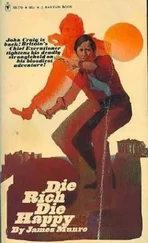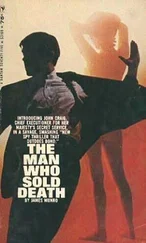James Munro - The Innocent Bystanders
Здесь есть возможность читать онлайн «James Munro - The Innocent Bystanders» весь текст электронной книги совершенно бесплатно (целиком полную версию без сокращений). В некоторых случаях можно слушать аудио, скачать через торрент в формате fb2 и присутствует краткое содержание. Жанр: Старинная литература, на английском языке. Описание произведения, (предисловие) а так же отзывы посетителей доступны на портале библиотеки ЛибКат.
- Название:The Innocent Bystanders
- Автор:
- Жанр:
- Год:неизвестен
- ISBN:нет данных
- Рейтинг книги:4 / 5. Голосов: 1
-
Избранное:Добавить в избранное
- Отзывы:
-
Ваша оценка:
- 80
- 1
- 2
- 3
- 4
- 5
The Innocent Bystanders: краткое содержание, описание и аннотация
Предлагаем к чтению аннотацию, описание, краткое содержание или предисловие (зависит от того, что написал сам автор книги «The Innocent Bystanders»). Если вы не нашли необходимую информацию о книге — напишите в комментариях, мы постараемся отыскать её.
The Innocent Bystanders — читать онлайн бесплатно полную книгу (весь текст) целиком
Ниже представлен текст книги, разбитый по страницам. Система сохранения места последней прочитанной страницы, позволяет с удобством читать онлайн бесплатно книгу «The Innocent Bystanders», без необходимости каждый раз заново искать на чём Вы остановились. Поставьте закладку, и сможете в любой момент перейти на страницу, на которой закончили чтение.
Интервал:
Закладка:
James Munro - THE INNOCENT BYSTANDERS
CHAPTER 1
It was time to go, and two by two the men embraced, looking in wonder into each other's faces, trying to read there what they felt: tension, fear, and an overwhelming joy. Zhelkov went first, in his hand the little packet of poison that Goldfarb and Kaplan had prepared. His task was dangerous, because when he fed the dogs a guard watched him, careful to see that he stole none of their food. But Zhelkov was dexterous, and the poison found its way into both food and water. He was very gentle with the dogs that night, fondling them, calling them by name, till the guard ordered him out and slouched off to his hut, and Zhelkov sat by himself and watched the dogs slump down and sleep. They always did, after their meal, but this time they did not finish their food.
Klein, Goldfarb, and Kaplan came next. They had the wire cutters Zimma had made, and the skill to use them. Over and over they had practiced on baling wire tougher than the obstacle in front of them. They sat by the wire and waited as the sky darkened. Then Moskowitz and Avramov brought out their mattresses and began to beat them. This was a common enough sight in the camp, where fleas and bedbugs abounded, but this time there was a special reason. The mattresses would protect them against the wire. Next it was Daniel, followed by Asimov and Gabrilovich. They were the rear guard, and in their pockets were the knives Zimma had made for them. Daniel had picked the other two because they were the fittest and hardest of the ten, and he had trained them well. They left the hut and moved, past the powerhouse and the guardroom toward their huts. The sky was dark now, and as they passed the stables the light came on, ponies stamped, and there was the chink of harness. In another five minutes the signal would sound for them to go inside their huts, and a guard would go to release the dogs. Daniel stepped out quicker. When the lights went each man had to be as near a guard as he could, without causing suspicion. Without the guards' carbines they would have no chance at all, and this work mustn't be wasted, he thought. Must not. And yet I feel it. Something is wrong. Where is Zimma?
Zimma had prayed once more, alone, and God had heard him and clearly answered. When Zimma had heard all that God had to say, he rose, picked up the ax that was in the tool shed, and limped toward the powerhouse. As he did so, Moskowitz and Avramov rolled up their mattresses and walked toward the wire, hanging on the outskirts of the crowd that was already moving toward the huts. Zimma kept on walking, a man who had been sent to chop wood and was returning his ax, and nobody noticed or cared. When he reached the guard, Zimma went straight up to him, mumbling a question. The guard motioned him forward impatiently, and Zimma advanced two more steps, then swung the ax, and the blade bit deep into his head, severing the back of the skull. Zimma picked up the guard's carbine and turned. After a moment of incredulous quiet, prisoners were running, yelling, to their huts, away from the powerhouse to which the guards were racing. Zimma shot the first two guards and stepped into the powerhouse, a prayer on his lips. He was very happy. Quickly he found what he wanted, and limped forward. Hear ye, Israel, he said aloud, and swung the ax for the last time.
The darkness when it came was total, but already the men with the wire cutters had moved into position, the men with the mattresses close behind. The pandemonium around them was so complete that men had eyes only for their own huts, thought only of the terrible revenge that would be taken for the powerhouse sentry. When Zimma fired, Daniel attacked his guard, who was trying to push his way through a crowd of prisoners to reach the source of the shots. Asimov and Gabrilovich followed his lead. Zimma had given them a wonderful opportunity, and they took it. Daniel's hands snapped the life from the guard as if it were thread. Gabrilovich and Asimov used their knives. All three men killed quickly, but without pity. The one Asimov killed had been his lover.
They took the carbines and ammunition pouches and grouped together. No one stopped them; every face they saw was filled with incredulous horror. Then the rights died and they raced to the wire, the mattresses went down and they were through, running, Daniel in the lead, feeling his way along the track that he had memorized, eyes closed, for the last three weeks. They fought the clearing in the forest and lay panting as Daniel called out their names. Asimov, Avramov, Daniel, Gabrilovich, Goldfarb, Klein, Moskowitz, Zhelkov. Of Kaplan there was no sign.
Goldfarb said at last, "I think he knew he had no chance. He did this to help us."
Daniel heaved up the great stone that covered their hoarded food.
"I hope so," he said, "but there is something wrong. I know it."
Quickly he gave each man his share of the food, then, put into each hand a nugget of gold.
"We split up now?" Moskowitz asked.
Daniel said, "In a moment. First let me have the weapons."
He distributed them carefully. The best shot in each team got a carbine, the rest had knives. Gabrilovich led a team, and so did Klein. Daniel's team of four was reduced to two: Zimma dead, Kaplan missing.
"Go now," said Daniel. "Asimov and I will be the rear guard."
They said no word, and it was dark still, but their silence was filled with meaning. Then Gabrilovich and Klein left, and the others followed.
"What do we do?" Asimov asked.
"We move north," said Daniel.
"North? But that's the wrong way."
Daniel said nothing for a moment, then: "We'll draw off the pursuit," he said and smiled.
"You're a good man," Asimov said.
Daniel remembered the jingle of harness in the stable.
The ponies had been saddled and ready even before the breakout. No point in going into all that with Asimov; not now. The boy admired him too much.
A squadron of guards, mounted on ponies, overtook Gabrilovich's team before dawn and killed them all at a loss of a man and two ponies. It took them longer to find Klein's team, because they had lost their route, and when they did, Klein's team fought hard. The guards wanted one prisoner at least, but in the end only Zhelkov was left alive, and he died of wounds on the way back. The guards lost two more men. Shortly afterwards the Uzbek commandant was shot by firing squad, and his second-in-command, who had led the pursuit, was promoted in his place. For six months Kaplan, Daniel, and Asimov were posted missing; after that they were presumed dead.
To die in Volochanka is not perhaps such a terrible thing; to survive is infinitely worse. Volochanka is special. It is designed, as Hell was, for the fallen angels, and like Hell's its final torture is despair. The achievement of the ten was that they faced despair and did not let it defeat them. Gabrilovich began it, with the kind of accident that only later they learned to recognize as the hand of God. Gabrilovich had been a mining engineer, and worked in the coal mine. It was part of his rehabilitation; learning how the miners themselves lived and worked and suffered, so that if society again found him acceptable, he, the intellectual, would know what workers must endure as a result of his decisions. His rehabilitation consisted of hauling a truck loaded with coal for fourteen hours a day from the face to the shaft. Zimma helped him. Zimma had been a doctor, specializing in survival techniques. For three years he had worked on the training of astronauts. They had hauled the trucks together for days, collapsed like exhausted animals in their rest periods, wolfed their appalling food at noonday, and talked hardly at all. Talk was dangerous, it led to nostalgia, and nostalgia only increased the just-bearable weight of suffering that each man bore. Then one night Gabrilovich had a dream: it re-created vividly the new suit his father had bought him for his bar mitzvah, and the smells of the food his mother had cooked, the delicate dry flavor of Crimean wine. Gabrilovich wanted very much to share the weight of that dream. It was too much to carry alone. He had looked at Zimma that noon, gulping his lukewarm soup, dividing up his bread—Zimma always saved some of his bread, and Gabrilovich hated him for it—then he had spoken the words.
Читать дальшеИнтервал:
Закладка:
Похожие книги на «The Innocent Bystanders»
Представляем Вашему вниманию похожие книги на «The Innocent Bystanders» списком для выбора. Мы отобрали схожую по названию и смыслу литературу в надежде предоставить читателям больше вариантов отыскать новые, интересные, ещё непрочитанные произведения.
Обсуждение, отзывы о книге «The Innocent Bystanders» и просто собственные мнения читателей. Оставьте ваши комментарии, напишите, что Вы думаете о произведении, его смысле или главных героях. Укажите что конкретно понравилось, а что нет, и почему Вы так считаете.












